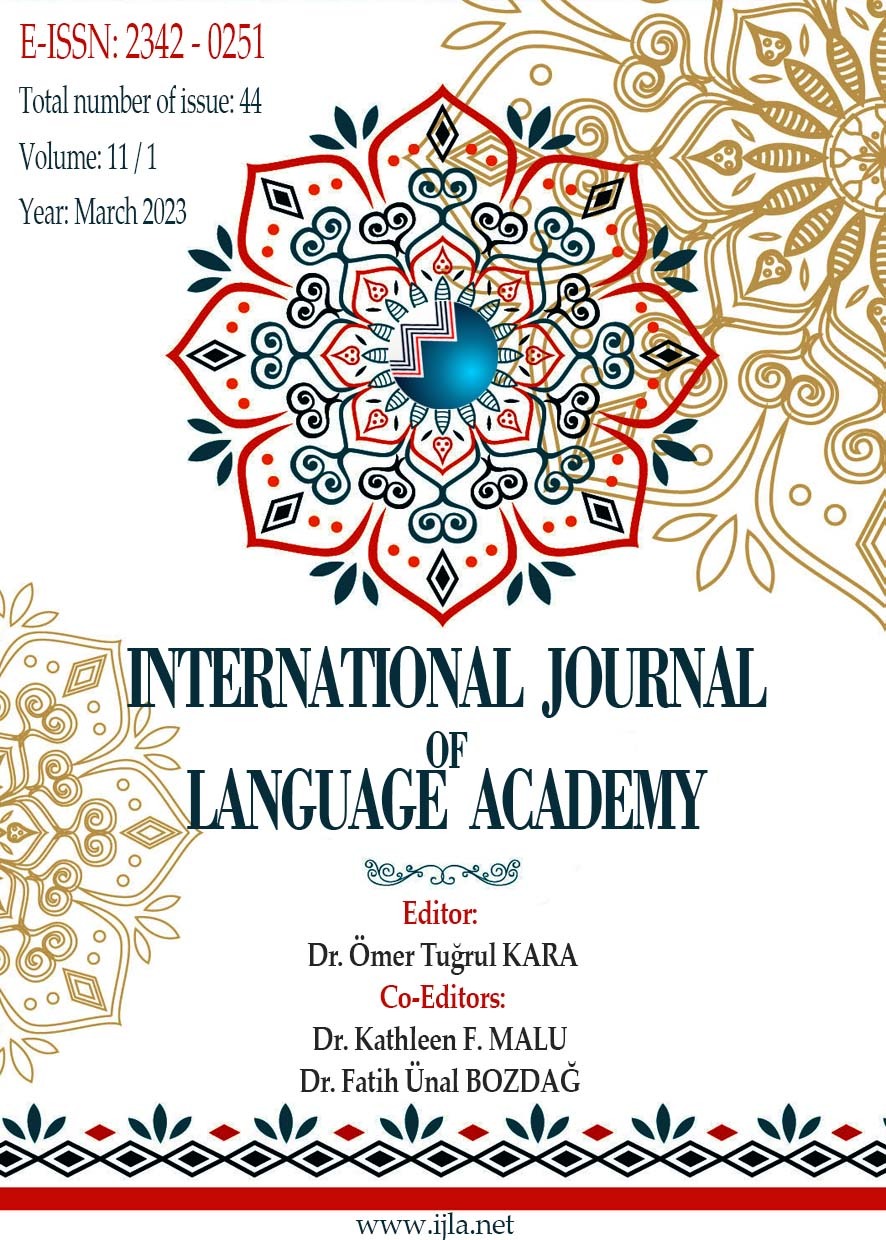Author :
Abstract
Günümüzde farklı nedenlerle artan insan hareketliliği, kişinin bulunduğu ülkede sözlü çeviri hizmetinden faydalanmak zorunda kaldığı süreçleri de beraberinde getirmektedir. Bu doğrultuda, kişi etkili iletişim sağlayabilmek için yetkin, güvenilir ve nitelikli toplum çevirmenine ihtiyaç duymaktadır. Geçmişte yoğun göç alan ülkelerde toplum çevirmenliğinin, gönüllülük esasına dayalı bir çeviri türü olması nedeniyle, eğitim almamış dil aracısı olarak görev alan amatör çevirmenler tarafından yerine getirildiği bilinmektedir. Ancak günümüzde toplum çevirmenine yönelik eğitim ve sertifika programların uygulanması sürecinde, toplum çevirmeninin profesyonel kimlik kazanması gerekliliği, çeviri edimi sürecinde görünürlüğün önemi gibi konuları, bilimsel araştırma gerekliliğini de ortaya koymuştur. Toplum çevirmenliğinin bir alt türü olan mahkeme çevirmenliğinde, kişinin adil yargılanma hakkının sağlanması için çevirmenin kovuşturma evresinde üstlendiği görev ve yetkilerin belirlenmesine ve mesleki standartların geliştirilmesine yönelik bilimsel çalışmalar mevcuttur. Mahkemede kullanılan dili konuşamayan şüpheli/sanığın ve mağdurun, “Tercümandan Faydalanma Hakkı’ndan” duruşma öncesi ve tüm soruşturma kapsamında faydalanması önemli bir haktır. Bu doğrultuda, konuşulan dili anlamayan veya konuşamayan şüpheli/mağdurun polis tercümanı aracığıyla kendi dilinde ifade verme hakkından faydalanması, Ceza Muhakemesi Kanunu kapsamında düzenlenmiştir. Yapılan alan incelemelerinde polis tercümanlığına ilişkin bilimsel bir çalışmaya Türkiye’de rastlanmamıştır. Bu nedenle bu çalışmada, Ceza Muhakemesi Kanunu kapsamında soruşturma ve kovuşturma evresinin temel süjeleri olan hâkim, savcı, müdafiinin görevini uygun şekilde yerine getirilmesine yardımcı olabilecek rehber niteliğinde hazırlanmış olan kılavuzlarda tercümanın görev ve rolüne ilişkin esaslar irdelenecektir. Ancak bu çalışmanın en önemli amacı soruşturma evresinde ihtiyaç duyulan çeviri hizmetlerinde, sözlü iletinin aktarılmasında uyulması gereken yaklaşımların hangi nitelikle olduğunu değerlendirmektir. Bu kapsam doğrultusunda polis tercümanının görevleri, yetkileri ve sorumlukları ortaya konmaya çalışılmaktadır.
Keywords
Abstract
As a result of increasing human mobility, individuals who have to live in a non-native country need to benefit from competent, reliable, and qualified interpreting services. In the past, untrained amateur interpreters who worked as community interpreters worked voluntarily in countries receiving heavy immigration. However, today, implementing training and certification programs for community interpreters to gain a professional identity and visibility in the interpreting process reveals that scientific research is a significant necessity in the field. Some studies about court interpreting, which is considered a sub-type of community interpreting, define the duties, competence, and improvement of professional standards. The suspect or defendant who cannot speak the language spoken in the court must have the “Right to Benefit from an Interpreter” before the hearing and during the investigation. In this respect, it is regulated under the Criminal Procedure Law that the suspect or victim, who cannot understand or speak the spoken language, benefits from the right to testify in their own language through a police interpreter. When the studies are considered, it is seen that there are not many studies on police interpreting. Thus, in this study, the principles regarding the duty and role of the interpreter are examined in the guide prepared to help the main subjects of the investigation and prosecution phases within the scope of the Criminal Procedure Law to well-define their duties. However, the most significant aim of this study is to evaluate the quality of the approaches in interpreting the verbal messages in the interpretation services during the investigation phase. Within this scope, the study tries to set forth the duties, authorities, and responsibilities of police interpreters.





